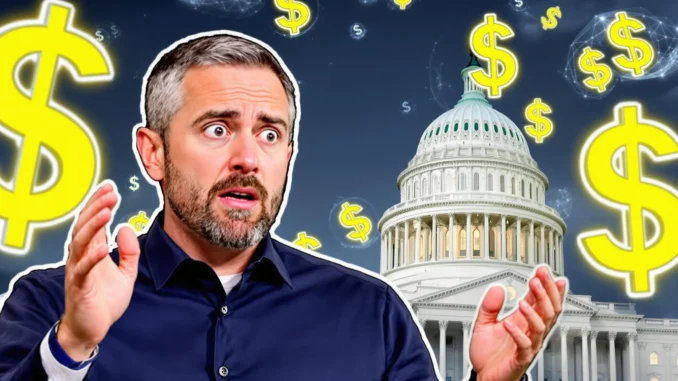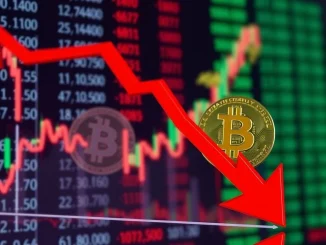
The crypto world is buzzing with reactions to the proposed U.S. stablecoin regulation bill, and one prominent voice has risen to the forefront with sharp criticism. Vance Spencer, the co-founder of Framework Ventures, a well-known crypto venture capital firm, has publicly condemned the bill, labeling a specific provision as “crazy” and potentially damaging to U.S. interests. Let’s dive into what’s causing this stir and why Spencer’s concerns about stablecoin regulation are resonating within the crypto community.
Why is Vance Spencer Criticizing the US Stablecoin Bill?
Spencer took to X (formerly Twitter) to express his dismay regarding a reported provision within the upcoming US stablecoin bill. This provision, according to Spencer, would restrict foreign centralized stablecoin issuers from investing in U.S. Treasuries. His core argument is that this measure is counterproductive and detrimental to the U.S. for several key reasons:
- Economic Harm to U.S. Interests: Spencer argues that limiting access to U.S. Treasuries for foreign stablecoin issuers is economically unsound. He points out that this move effectively shuts off a significant source of demand for U.S. debt. With potentially hundreds of billions of dollars at stake, restricting this demand doesn’t make sense when the U.S. is grappling with its own debt issues.
- Threat to Dollar Hegemony: A central point of Spencer’s critique is that this regulation could undermine, rather than strengthen, the dollar’s global dominance. He emphasizes that major stablecoin issuers and a substantial portion of the demand for stablecoins originate outside the U.S. By creating hostile regulations, the U.S. risks pushing these entities and this demand away from the dollar ecosystem.
- Stifling Innovation and Market Share: Spencer warns that a restrictive regulatory environment could push the U.S. out of the global stablecoin market altogether. If the U.S. becomes an unfriendly jurisdiction for stablecoins, issuers may choose to operate elsewhere, potentially tethering future stablecoins to other currencies instead of the dollar.
The “Crazy” Provision: Restricting Access to US Treasuries
The heart of Spencer’s criticism lies in the provision reportedly barring foreign centralized stablecoin issuers from investing in U.S. Treasuries. Why does he consider this “crazy”? Let’s break down the implications:
| Aspect | Impact of Restriction | Spencer’s Argument |
|---|---|---|
| Demand for US Treasuries | Reduces demand by barring foreign stablecoin issuers | This is counterintuitive when the US needs to manage its debt and maintain the dollar’s strength. |
| Dollar Hegemony | Potentially weakens the dollar’s global influence | Restricting access pushes stablecoin activity away from the dollar and towards other currencies. |
| Stablecoin Market | Drives stablecoin innovation and issuance away from the US | The US risks losing its leadership position in the burgeoning stablecoin market. |
In essence, Spencer’s argument is that this provision is shortsighted and fails to grasp the global dynamics of the crypto regulation landscape and the strategic importance of stablecoins.
Open Competition: The Key to Dollar-Pegged Stablecoins?
Spencer doesn’t just criticize; he also offers a solution. He stresses the importance of fostering open competition among stablecoin issuers to ensure the future of dollar-pegged stablecoins. What does this mean in practice?
- Encourage Innovation: Open competition encourages innovation in stablecoin design, security, and utility. This benefits the entire ecosystem and strengthens the appeal of dollar-backed stablecoins.
- Maintain Dollar Dominance: By allowing diverse and competitive stablecoin issuers to flourish, the U.S. can ensure that the dollar remains the dominant currency in the digital asset space. Restrictive measures, conversely, could push innovation and market share overseas.
- Attract Global Capital: A welcoming regulatory environment for stablecoins can attract global capital to the U.S. crypto market, fostering economic growth and technological advancement.
Framework Ventures’ Perspective on Crypto Regulation
As co-founder of Framework Ventures, Vance Spencer’s views carry significant weight within the crypto industry. Framework Ventures is known for its early investments in prominent blockchain projects and its insightful analysis of market trends. Spencer’s critique of the US stablecoin bill reflects a broader concern within the crypto VC community about overly restrictive regulations stifling innovation and driving talent and capital away from the U.S.
What’s Next for Stablecoin Regulation?
The debate surrounding stablecoin regulation is far from over. Spencer’s comments highlight the critical juncture at which the U.S. finds itself. The decisions made regarding stablecoin regulation will have profound implications for the future of the dollar in the digital age, the competitiveness of the U.S. crypto industry, and the overall trajectory of blockchain innovation.
Key Takeaways:
- Vance Spencer criticizes a provision in the proposed U.S. stablecoin bill that restricts foreign stablecoin issuers from investing in U.S. Treasuries.
- He argues this provision is “crazy” and harms U.S. national interests by reducing demand for U.S. debt and potentially weakening dollar hegemony.
- Spencer advocates for open competition among stablecoin issuers to ensure the dollar remains central to the stablecoin market.
- His critique underscores the ongoing tension between regulation and innovation in the crypto space.
Conclusion: An Urgent Call for Rethinking Stablecoin Regulation
Vance Spencer’s outspoken criticism serves as an urgent wake-up call regarding the potential unintended consequences of the proposed U.S. stablecoin regulation bill. His perspective highlights the need for policymakers to carefully consider the global implications of their decisions and to strike a balance between regulatory oversight and fostering a vibrant, competitive crypto ecosystem. The future of dollar-pegged stablecoins, and perhaps even the dollar’s digital future, may hinge on getting this regulatory framework right. The crypto community and beyond will be watching closely as this crucial legislation develops.



